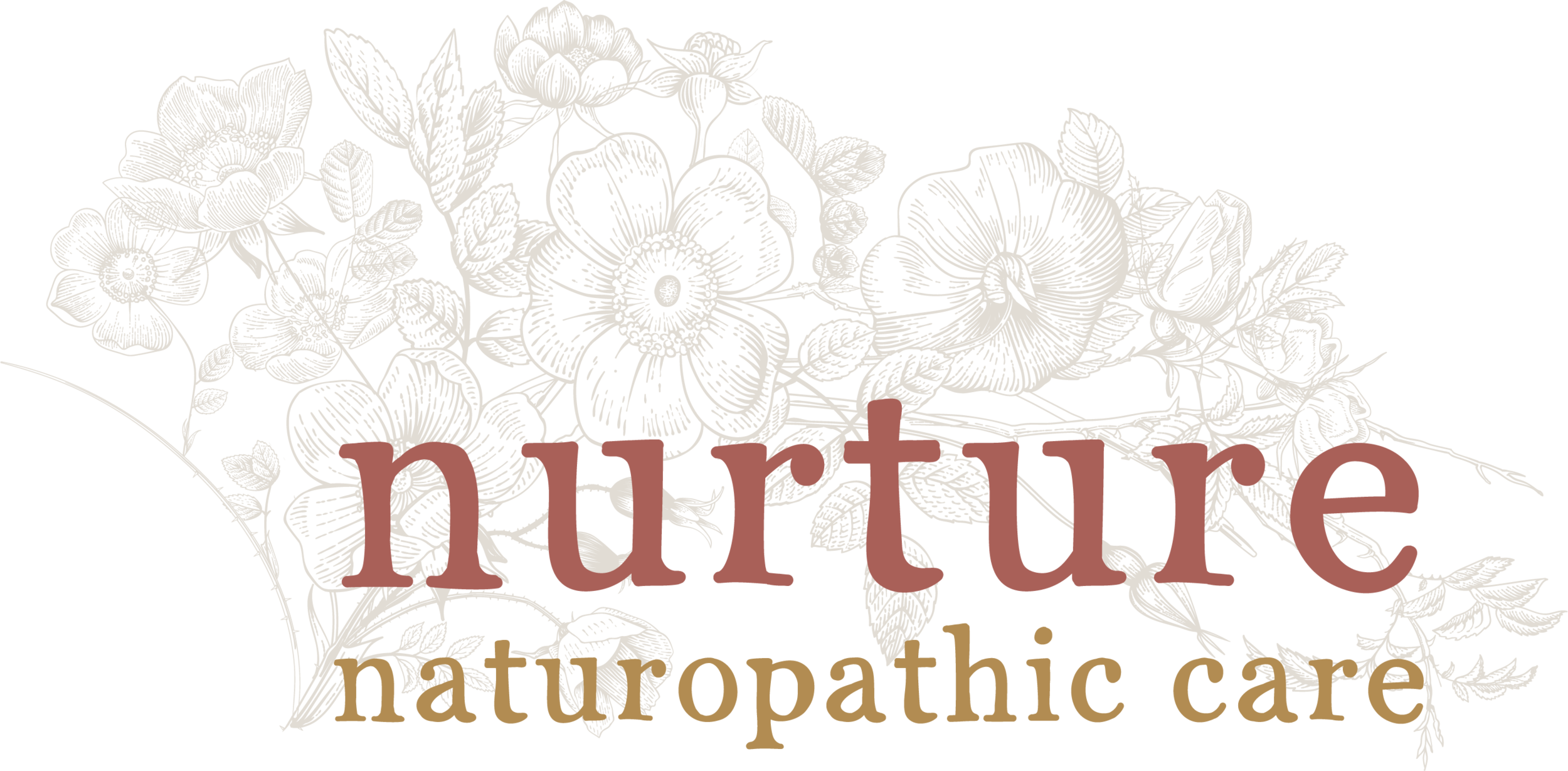welcome and hello, healthcare providers!
Thank you for your interest in Nurture Naturopathic Care. You may be wondering - what is my role in an interdisciplinary team with your patient, exactly? Not all naturopaths practice the same way (just like any other profession). Here is what you should know about me, as a naturopath:
I try to be a bridge between conventional medicine and natural medicine, believing that everyone can benefit from an integration of these approaches. My goal is to augment the care that clients are already receiving in the community by offering an interdisciplinary approach for better outcomes. Prevention truly is where naturopathic medicine shines and is at the center of my practice.
No referral is necessary for your patients to see me
I respect science and evidence based medicine
I use UpToDate to research conditions and get clinical recommendations
I use the Epocrates interaction checker before I prescribe nutrients or herbs
I use Hale's reference for medication compatibility with lactation
I promote informed consent and patient-centered care in every encounter
I primarily use nutrition, herbal medicine, counseling, and body work/physiotherapy techniques as my therapeutic tools
I do not use homeopathy, promote "detoxes", perform injection therapies or offer IV therapies
I am not "anti-vax" or "anti-pharma"
I do not sell or profit from the sale of any natural health product or supplement
Education
National University of Natural Medicine (NUNM), Doctor of Naturopathic Medicine with Natural Childbirth Certification 2012-2017
The basic science training for naturopathic doctors is surprisingly similar to medical doctors (I studied for my first board exam using the "First Aid for the USMLE Step 1" textbook), and most people do not realize that naturopathic training is focused on the provision of primary care.
In fact, the clinic associated with NUNM is a primary care medical home and most of my rotations were in a primary care setting. This is where I learned that 1) primary care doctors and nurse practitioners are super heroes and 2) I do not want the job of a superhero.
Instead, I have taken this experience with primary care as a way to understand and appreciate the medical systems we have in place and have identified where my expertise can be used to augment our primary care network.
*In Oregon I focused my preceptorships on maternity care and attended deliveries in home and birth center settings. Upon graduation with the Natural Childbirth Certificate I was licensed to provide full scope obstetrical care from preconception through pregnancy, delivery and postpartum. The training I received is most similar to midwifery training in Canada, without hospital privileges (so all hospital transfers required total transfer of care). This is NOT my scope in Alberta, but it provides the foundation for my knowledge in pregnancy, postpartum, and lactation care.
University of Alberta (U of A), Bachelor of Science, Animal Biology Specialization 2004-2009
My background as a biologist shapes my clinical outlook. In ecology, the healthiest ecosystems are the most diverse ones and I apply this when I approach client care.
My goal as a provider is to diversify peoples' diets, thought patterns, movements, microbiomes, and communities. I do this through focused nutritional advice, herbal medicine, physical therapy practices, motivational interviewing, the promotion of human milk as our babies' food sources, and a whole lot of positive reinforcement.
Continuing EducatioN COMPLETED
PELVIC FLOOR CARE:
Herman & Wallace Pelvic Rehabilitation Institute:
Pelvic Floor Level 1 (22.5 hr)
Pelvic Floor Level 2B (23.75 hr)
At this time my practice focus is on postpartum pelvic floor rehabilitation for prevention of pelvic floor dysfunction as well as treatment of postpartum urinary incontinence and pelvic organ prolapse.
LACTATION:
Calgary Breastfeeding Centre, Nicole Ahmed, RN BN MSN IBCLC
Part 1 (20 hr)
Part 2 (30 hr)
I am working towards IBLCE lactation consultant certification.
This requires 90 hours of lactation specific coursework and 1000 clinical hours of direct lactation support.
